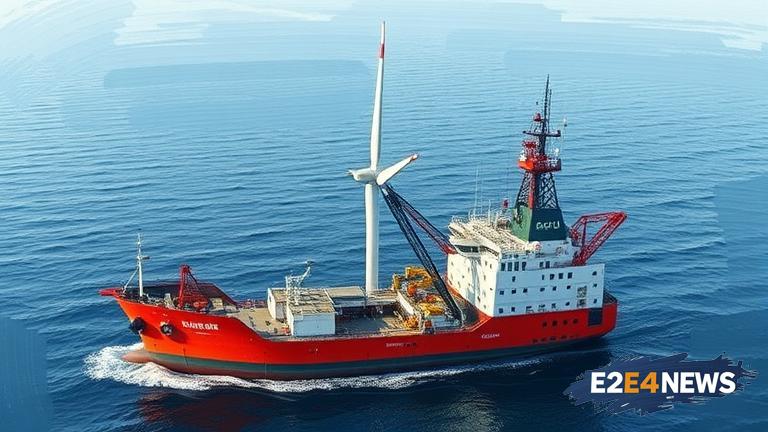Germany’s offshore wind industry is facing a significant challenge in the form of a skilled labour shortage, which could potentially hinder the country’s plans to expand its offshore wind capacity. The country has set ambitious targets to increase its offshore wind power generation, but the lack of skilled workers in the sector is threatening to derail these plans. The shortage of skilled labour is not limited to Germany, but is a global issue affecting the offshore wind industry as a whole. However, Germany’s unique situation, with its strong focus on renewable energy and ambitious targets, makes the shortage particularly pressing. The country’s offshore wind industry is expected to play a crucial role in helping Germany meet its renewable energy targets, but the shortage of skilled workers is making it difficult for companies to find the personnel they need to install and maintain offshore wind farms. The shortage is particularly acute in areas such as engineering, project management, and technician roles. Many companies are struggling to find workers with the necessary skills and experience to work on offshore wind projects, and this is leading to delays and increased costs. The German government has recognized the issue and is taking steps to address it, including investing in training programs and education initiatives. However, these efforts will take time to bear fruit, and in the short term, the shortage of skilled labour is likely to continue to be a major challenge for the industry. The offshore wind industry is not the only sector affected by the shortage, with other industries such as construction and manufacturing also feeling the pinch. However, the offshore wind industry is particularly vulnerable due to the specialized nature of the work and the need for highly skilled workers. The shortage of skilled labour is also having a knock-on effect on the supply chain, with companies struggling to find the personnel they need to manufacture and supply the necessary equipment. This is leading to delays and increased costs, which are being passed on to consumers. The German government is under pressure to address the issue, with many calling for more to be done to support the industry and attract more workers. The government has set a target of generating 65% of the country’s electricity from renewable sources by 2030, but this will be difficult to achieve if the shortage of skilled labour is not addressed. The offshore wind industry is expected to play a crucial role in helping Germany meet this target, but the shortage of skilled workers is making it difficult for companies to install and maintain the necessary infrastructure. The industry is calling for more support from the government, including investment in training programs and education initiatives. The government is also being urged to do more to attract workers from other industries, such as the oil and gas sector, where many workers have transferable skills. The shortage of skilled labour is not just a German issue, but a global problem affecting the offshore wind industry as a whole. Many countries are facing similar challenges, and there is a need for international cooperation to address the issue. The offshore wind industry is a rapidly growing sector, with many countries investing heavily in offshore wind farms. However, the shortage of skilled labour is threatening to hinder the growth of the industry, and urgent action is needed to address the issue. The German government is taking steps to address the issue, but more needs to be done to support the industry and attract more workers. The industry is calling for a comprehensive strategy to address the shortage, including investment in training programs, education initiatives, and measures to attract workers from other industries. The shortage of skilled labour is a major challenge for the offshore wind industry, but it is not insurmountable. With the right support and investment, the industry can overcome the shortage and continue to grow and thrive.
